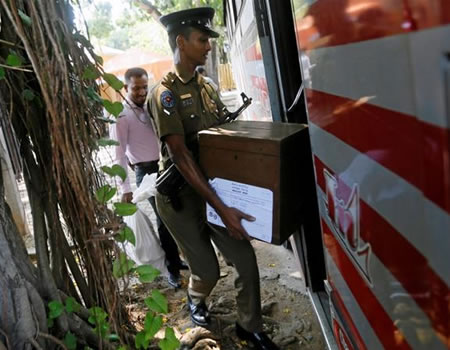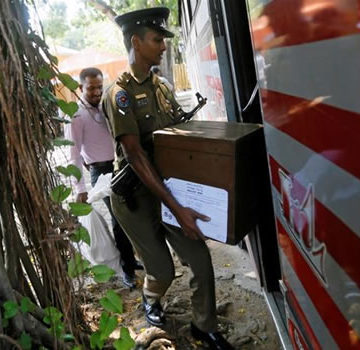At 1:30 pm local time (19:00 GMT), with most results in, the Sri Lanka Podujana Peramuna (SLPP) had won 44.05 percent of the vote.
Prime Minister Ranil Wickremesinghe’s United National Party (UNP) garnered 31.65 percent while the President Maithripala Sirisena’s Sri Lanka Freedom Party (SLFP) came a distant third with 9.52 percent of the vote.
This is the first local elections since the centre-left SLFP and centre-right UNP parties formed a unity government in August 2015.
The UNP however, is expected to win the Colombo Municipal Council comfortably, with Rosy Senanayake set to become the first female mayor of Sri Lanka’s capital city.
Saturday’s result has surprised many Sri Lankan political analysts and is being considered a blow to the ruling coalition that has been roiled by political bickering in recent months.
President Sirisena was particularly critical of the UNP in their handling of the economy. Many UNP ministers publicly criticised the president.
The coalition infighting was clearly evident during the campaign trail, as both the coalition partners contested against each other.
Following a meeting with the UNP parliamentary group on Sunday afternoon, Prime Minister Wickremesinghe indicated that his party will continue with the ruling coalition until 2020.
The SLPP, formed by breakaway members of Sirisena’s party, attacked the unity coalition for what it called “broken promises” and corruption.
The election was contested for the first time using a complex system that mixed both the first-past-the-post and proportional representation systems.
Vidura Wickramanayaka, a member of parliament now aligned with the SLPP, told Al Jazeera that even though this was a local election, “this is tantamount to a national election, if you look at the political platforms, the issues that were discussed were national issues”.





